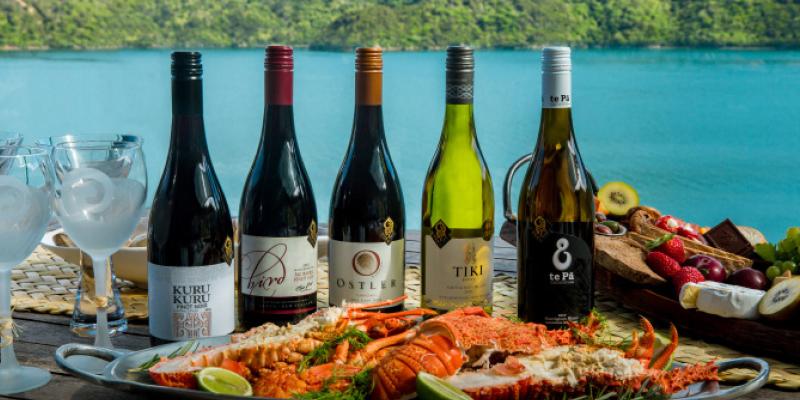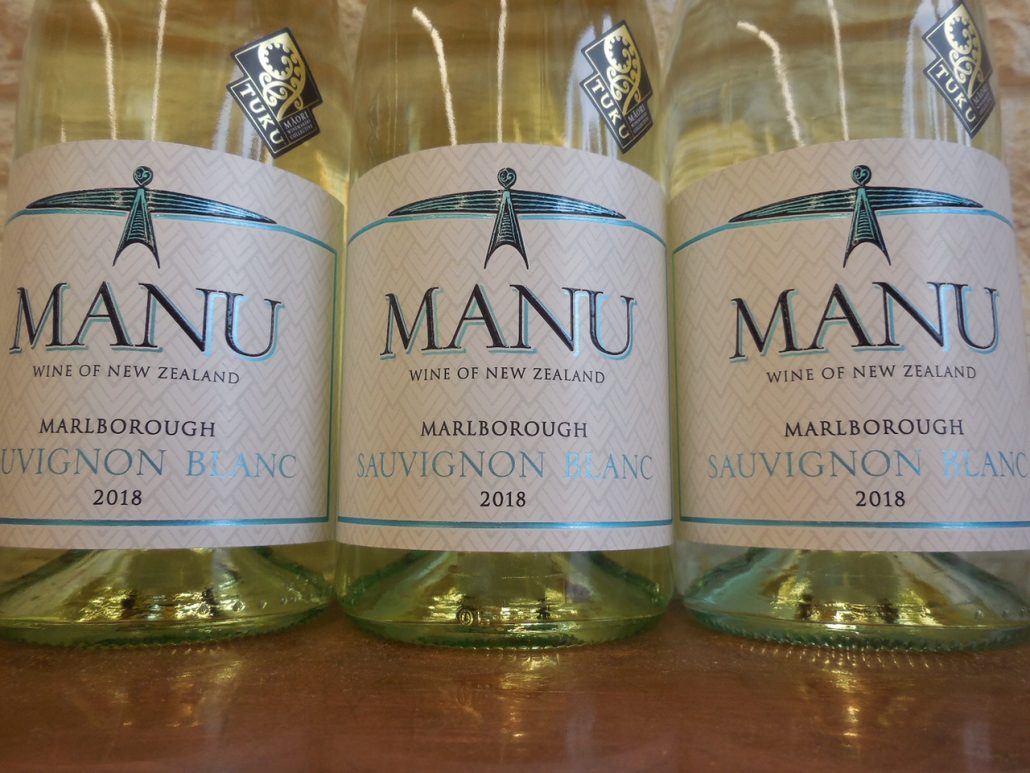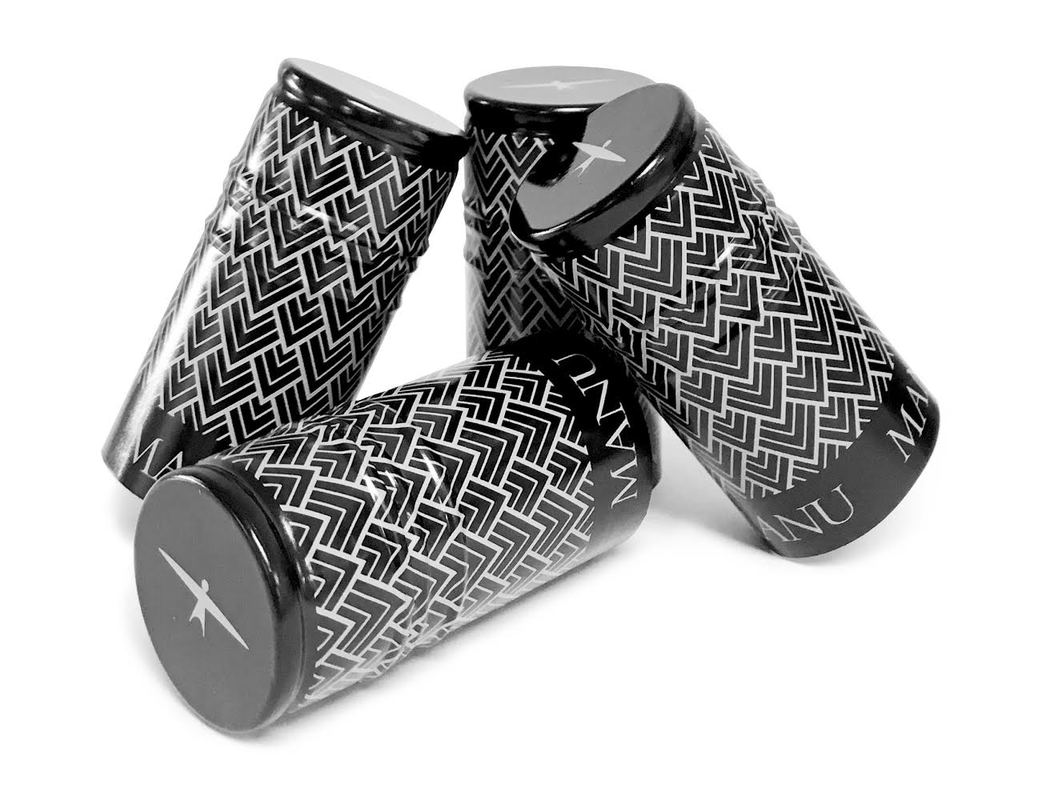|
The TUKU Māori Winemakers Collective is redefining the way to approach export business, and they’re excited by the reaction to their collaborative initiative.
It all started four years ago when a handful of Māori-owned wineries sat down with Poutama Trust and New Zealand Trade and Enterprise (NZTE). From that early conversation, a collaborative approach was taken to several international trade shows coming up in Taiwan and Hong Kong, also involving selected honey and meat producers – all were Māori owned businesses. The idea of establishing a wine collective amongst Māori emerged. There was nothing in that space at the time. The official launch of the TUKU Māori Winemakers Collective took place in mid-July at Air New Zealand’s customer innovation and collaboration centre (CICC) in Auckland’s CBD. The five founding members that make up the TUKU Collective are te Pā¯ Family Vineyards, Tiki Wines, Steve Bird Wines, Kuru Kuru Wines and Ostler Wines. Haysley MacDonald, owner of te Pā¯, says the goal of the Collective is to target opportunities with its portfolio offering, which represents most of New Zealand’s main wine growing regions – Marlborough, Waipara, Hawke’s Bay, Waitaki and Central Otago. There are also opportunities to collaborate on industry events, he says, to pool and share resources and generally share knowledge. “We want to put Māori on the map in the wine sector. Maori are already strongly represented across forestry, tourism, and seafood, so we’re keen to have more diversity for Māori businesses. “The very long-term goal is to leave a legacy for our kids, and their kids, and their kids after them. It’s what drives us all to create and nurture sustainable businesses, and that’s a point of difference to other companies, who might be only thinking ten, 20 years ahead. “As Māori, we’re thinking inter-generational business growth and longevity.” Marketing the business collectively offshore hasn’t been without its challenges. “We all talk about whakapapa and history, but outside of New Zealand the challenge is more about trying to get people to understand and appreciate that there was life in New Zealand before Captain Cook arrived,” explains Haysley. “To get international customers to see that can be a challenge, but it’s something we continue to work on as it’s so central to the Māori identity.” However, domestically there has been a lot of positive feedback, he says. “We’re really excited to see some strong domestic interest in the Collective’s offering from some major tourism operators, airlines and airports. The positive attention we’re gaining from key media is hugely valuable in promoting our Collective ideals and the businesses and brands within the group,” says Haysley. The response from their peers in the industry has been overwhelmingly positive too, he adds. “We’re hearing from our industry mates that this is a great initiative, and that it is good to see Maori business owners getting together and collaborating.” Export goals For the TUKU Māori Winemakers Collective, China is the first cab off the rank for international sales. Through their work with the Hui Maori Collective (a cluster of Māori food and beverage producers) they’re launching on Alibaba’s powerful Tmall e-commerce platform in November. Haysley says there is a world of potential through that single platform alone. “In terms of overall sales, anywhere there is an opportunity to pitch our Collective portfolio will benefit the individual businesses within our TUKU whānau.” While it’s still early days, the Collective is buoyed by the initial response overseas. “Master of wine, Bob Campbell, was recently quoted as saying: ‘TUKU offers a point of difference that I know will captivate international audiences enough to get a foot in the door. The strength of their wine quality will do the rest’.” Long term goals Haysley says the long-term export goals of the TUKU Māori Winemakers Collective are really no different to those of each individual member: “sustainable, profitable partnerships with overseas markets, where we enjoy a long term relationship with our distribution partners, who see the value in our collective story and unique Māori heritage”. Looking back and with the benefit of hindsight he doesn’t think they would have done anything differently. “We’re a small group, so we are finding our feet as we go in many areas. “Where other collaboratives and collectives work together solely from a business point of view, we’re a bit different as it’s more of a family environment. We’ll stay at each other’s places when we’re travelling; we share kai together and enjoy a laugh. “We’re excited that people see TUKU as a point of difference and see it as a different way of doing business,” says Haysley. “It’s not all about dollars and cents; it can be about Te Ao Māori, which is a unique way of viewing and being in the world.” It’s like when you casually lean over to smell a rose, not expecting anything, and you can actually smell the rose! It transports you to your childhood in your grandmother’s beautiful garden with melon sized roses that you could smell from a yard away.
That is how the Manu Sauvignon Blanc is. You open it and pour, expecting to smell some Sauvignon Blanc, but then you smell it! It has a gorgeous nose that feels like a lungful of fresh air out on an alpine meadow. It is full of bright lime, grapefruit and green apple freshness balanced with tropical notes of guava and gooseberry. It is overlaid by a wonderful herbal grassiness that reminds you of lying on a hillside on a lush lawn watching the clouds drift across the sky. Even if you never actually taste the wine, you could breathe it in all day. But then if you do taste it, it is tart and tangy, round and smooth and totally refreshing – from the first taste to the last lingering flavors, it is a wine to be tasted with your eyes closed. Sauvignon Blanc is grown in many regions of the world. While the Loire and Bordeaux are undoubtedly the wellspring of classic Sauvignon Blanc wines, it has found one of its most popular expressions in New Zealand. Close to 95% of all wine exported form New Zealand is Sauvignon Blanc, followed by very excellent Pinot Noir. What is it about this southern clime that makes this wine so special there? There are several factors. One is the ideal climate in the Marlborough region of the southern island. It is a maritime climate with warm, sunny days and cool nights with ocean breezes flowing off the Pacific to cool down the vines. The morning fogs protect the grapes from the worst of the sun’s ray until the sun is overhead and the leaves can protect them – after all, grapes can get sunburned too. It has combination of schist and sandstone mixed with clay (called Greywacke) that allows the roots of of the plant to penetrate deep, drain well and yet retain enough moisture to nourish the vines. And of course, the final factor is the winemaker. Steve Bird is a fabulous producer – dedicated, thoughtful and willing to think “outside the box.” As our summer transitions into autumn, this wine will allow you to linger in that alpine meadow for a little longer and draw out the best of the season. http://www.mysticwineshoppe.com/blog/ |
�
Archives
July 2021
Categories |
|
|




 RSS Feed
RSS Feed
